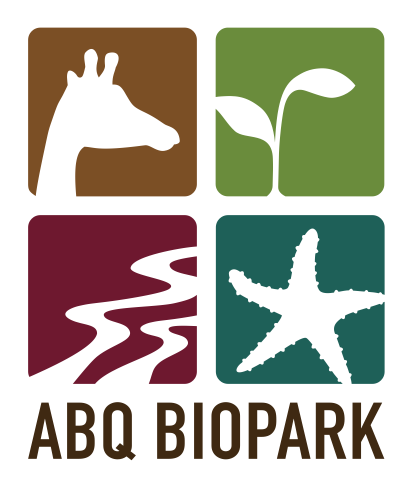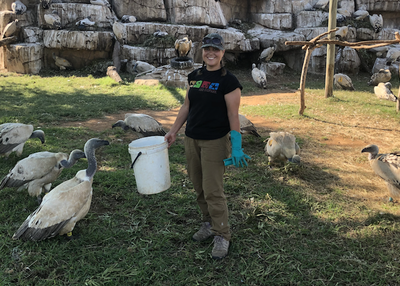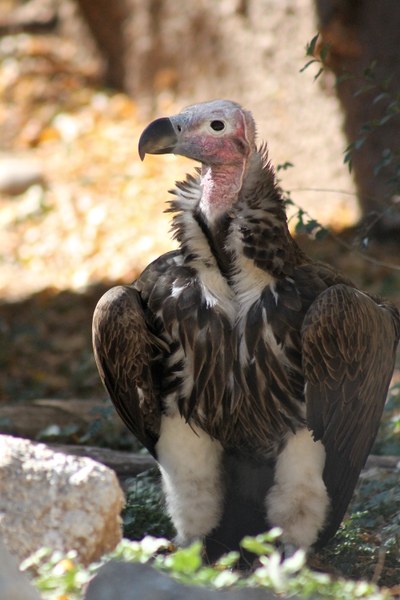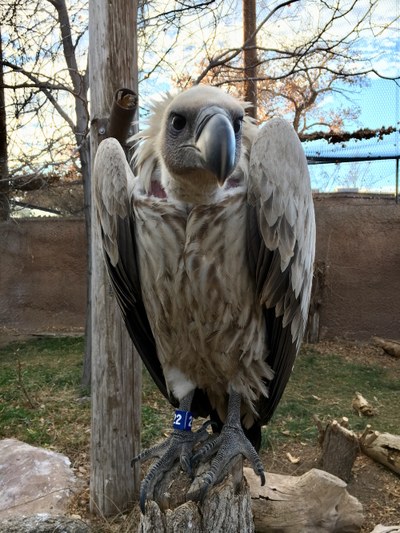
Celebrating Vultures at the Zoo
September 5 is Vulture Awareness Day.
Hands-on Vulture Training in South Africa

ABQ BioPark Zookeeper Amanda Baca visited VulPro in South Africa in early 2019 to help with the organization’s vulture rehabilitation efforts. The center is home to more than 200 rescued vultures and focuses on research, rehabilitation and captive breeding. Her trip was funded by the ABQ BioPark Conservation Committee.
Baca says the highlight of her trip was watching breeding and courtship rituals between eight different vulture species. “I was surrounded by so many vultures everyday,” Baca said. “It was awesome.”
Baca also learned some things that will assist her in her work at the BioPark, particularly when it comes to vulture conservation and the ABQ BioPark’s breeding program.

The ABQ BioPark is home to four vulture species: four Cape vultures, one lappet-faced vulture, two Andean condors and one black vulture that is part of the education team. You can find our Cape and lappet-faced vultures in the Africa section of the Zoo. Our Andean condors are on display in our newly renovated Raptor Roost exhibit.
The ABQ BioPark is part of an Association of Zoos and Aquariums breeding program for the Cape vulture, which is native to South Africa. In 2018, the BioPark welcomed a baby Cape vulture named Nazgul. Although he’s grown in the past few years, he's still considered a juvenile and has darker colored eyes and more brown feathers than the adults. See if you can pick him out from the rest of the wake (this is what a group of 
To help with breeding efforts, the BioPark recently sent two of its male Cape vultures to other facilities and received a new male. This shuffle will help increase genetic diversity, making for stronger and healthier babies in the future. A pair is already set to mate, but according to ABQ BioPark Zookeeper Amanda Baca, it could be a few years before they start to cozy up to each other. Bird care staff is doing whatever it can to encourage the new couple to breed though. This means providing them with plenty of nesting materials.
PHOTOS: Lappet-faced vulture (top left); Nazgul (bottom right); Amanda Baca at VulPro (sidebar). All photos provided by Amanda Baca.
